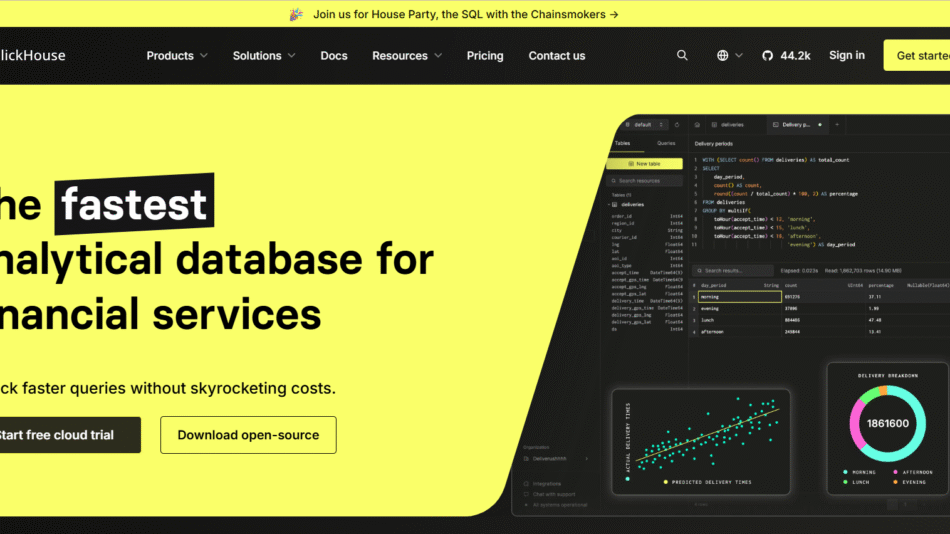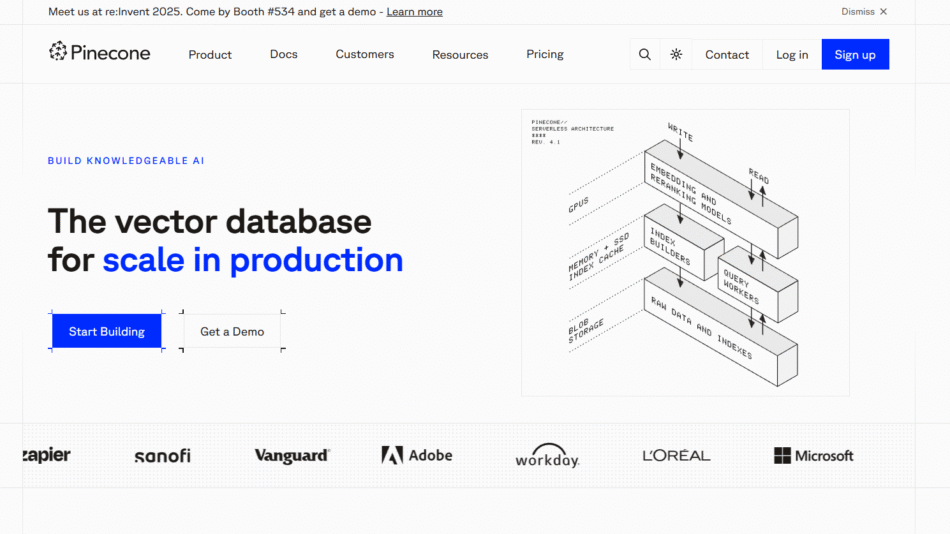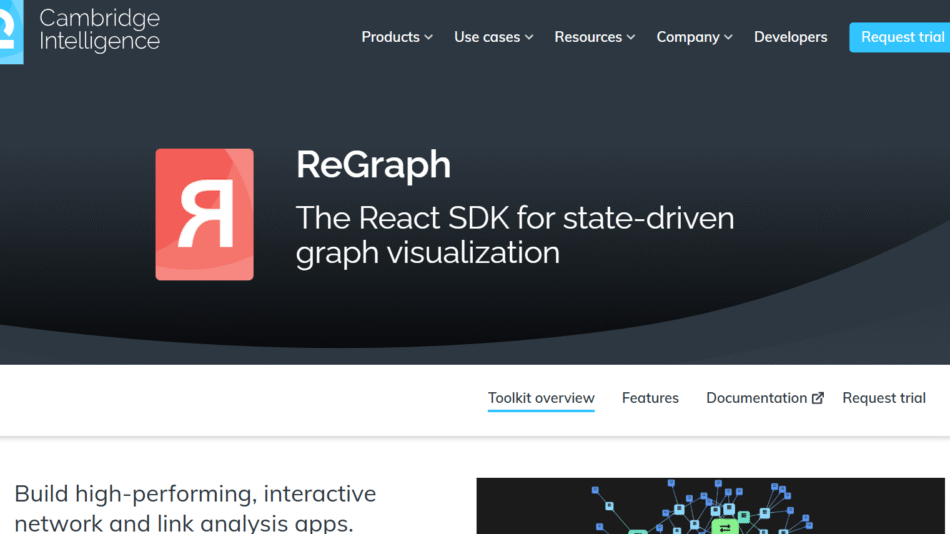Rebellions.ai is a South Korea-based semiconductor startup that designs advanced AI chips built for next-generation computing applications. Unlike general-purpose processors or GPUs, Rebellions.ai develops application-specific integrated circuits (ASICs) that are optimized for artificial intelligence and machine learning workloads in both data center and edge environments.
The company aims to redefine AI performance and energy efficiency with chips purpose-built for specific use cases. Rebellions.ai focuses on solving real-world problems such as the limitations of existing AI hardware, power consumption challenges, and scaling bottlenecks in AI infrastructure.
With a vision of becoming a leader in custom AI accelerators, Rebellions.ai combines deep hardware expertise with a software-first mindset, offering products that cater to enterprise AI deployments, hyperscalers, and government-grade AI infrastructure.
Features
Rebellions.ai focuses on building high-performance, energy-efficient AI processors. While specific technical details vary by product, core features of their chip architecture include:
Custom AI ASICs: Built from the ground up to accelerate specific AI tasks such as inference, vision processing, or large language models.
High Compute Density: Delivers superior performance per watt compared to traditional GPUs or CPUs.
Memory Optimization: Designed to minimize memory bottlenecks and support high-bandwidth data movement.
Edge and Data Center Deployment: Chips are optimized for both cloud-based and on-device inference.
Scalability: Architecture is modular and scalable, suitable for hyperscale environments and distributed AI systems.
Low Latency: Tuned for real-time AI processing with ultra-low inference delays.
Secure Architecture: Built with AI security features that support defense and high-assurance computing needs.
Rebellions.ai also focuses on developing accompanying software stacks, drivers, and SDKs that help developers deploy AI models on their custom silicon with minimal friction.
How It Works
Rebellions.ai chips are engineered to address the performance and efficiency limitations of general-purpose processors in AI tasks. Traditional CPUs and GPUs are designed for flexibility across many tasks but are not always optimal for specific AI operations. Rebellions.ai addresses this gap by building ASICs specifically tuned for AI workloads such as neural network inference, computer vision, or natural language processing.
Each chip integrates a custom architecture that reduces latency, improves energy efficiency, and maximizes compute utilization. Developers can use Rebellions.ai’s software tools to deploy AI models directly to the chip, benefiting from improved throughput and lower operational costs.
The chips are built to support AI applications ranging from large-scale data center operations to edge devices in smart cities, autonomous systems, and industrial IoT.
Use Cases
Rebellions.ai chips are designed to serve a broad range of industry applications that require high-efficiency AI processing:
Data Centers: Accelerate AI workloads in hyperscale infrastructure with lower power draw and higher compute density.
Defense and Aerospace: Provide high-assurance, low-latency AI inference for mission-critical applications.
Smart Cities: Enable edge-based AI for traffic management, surveillance, and infrastructure automation.
Autonomous Vehicles: Support real-time decision-making and object detection using low-power edge AI chips.
Telecommunications: Power AI features in 5G infrastructure and network optimization systems.
Healthcare and Diagnostics: Run medical AI models on secure, dedicated hardware for real-time analysis.
Finance and Trading: Speed up machine learning inference for fraud detection, trading algorithms, and predictive analytics.
Pricing
Rebellions.ai does not publicly disclose pricing information on its official website. As a B2B semiconductor and AI hardware company, pricing likely varies based on:
Chip type or performance tier
Volume of purchase
Integration requirements
Support level (hardware, software, security)
Custom development or deployment services
Interested enterprises or partners must contact Rebellions.ai directly to discuss deployment needs and receive a custom quote.
Strengths
Rebellions.ai delivers several clear advantages over traditional AI hardware solutions:
Purpose-Built Performance: Optimized for AI workloads, resulting in better throughput and efficiency.
Energy Efficiency: Lower power consumption per task, critical for both sustainability and edge computing.
Custom Architecture: Designed from scratch rather than adapted from gaming or graphics platforms.
Software Support: Offers development tools and SDKs to simplify AI deployment on their chips.
Scalable Design: Suits a wide range of deployment scenarios from small devices to cloud clusters.
Security Focus: Meets high standards required for sensitive or national security applications.
Innovation in Asia: One of the few advanced AI chip startups based in South Korea, helping diversify global semiconductor supply chains.
Drawbacks
Despite its strengths, Rebellions.ai may face several challenges:
Early Stage Hardware: Compared to Nvidia or AMD, the ecosystem and tooling may still be developing.
Limited Availability: Chips may only be available to select partners or via bulk purchasing.
Adoption Barriers: Organizations must adapt workflows to new hardware and software platforms.
Competition: Faces strong competition from large incumbents and other AI hardware startups globally.
Documentation and Community: As an emerging company, developer support resources may be limited for now.
Comparison with Other Tools
Rebellions.ai vs. Nvidia GPUs: Nvidia GPUs are general-purpose and widely adopted for AI training and inference. Rebellions.ai offers domain-specific chips with potentially better efficiency for narrow AI tasks.
Rebellions.ai vs. Graphcore: Both companies create purpose-built AI hardware. Graphcore focuses on its IPU architecture, while Rebellions.ai is building custom ASICs tuned to specific performance and power targets.
Rebellions.ai vs. Google TPU: Google TPUs are only available in Google Cloud. Rebellions.ai provides more flexible deployment options for on-premise or sovereign infrastructure.
Rebellions.ai vs. Tenstorrent or Cerebras: These AI hardware startups also build domain-specific AI accelerators. Rebellions.ai’s differentiator is its focus on power efficiency, real-time inference, and regional hardware independence.
Customer Reviews and Testimonials
As a hardware-focused company in active development, Rebellions.ai does not yet publish extensive customer reviews or public case studies. However, the company has gained attention for its partnership with South Korean government initiatives, financial backing from leading investors, and technical collaborations with major enterprises in Asia.
In media interviews and investor briefings, early adopters and partners have noted the platform’s potential to reshape AI computing in energy-constrained and security-focused environments.
An executive from a telecom provider stated:
“What sets Rebellions.ai apart is its ability to execute high-performance AI tasks at the edge where power and latency constraints matter most.”
Conclusion
Rebellions.ai is a next-generation AI chipmaker that’s solving one of the most pressing problems in AI infrastructure—how to deliver high performance without compromising energy efficiency or flexibility. Its custom-designed AI ASICs are positioned to serve enterprise, defense, and telecom markets that need speed, security, and scalability in AI operations.
As global demand for specialized AI hardware grows, Rebellions.ai stands out for its innovative engineering, regional focus, and ability to operate both at the edge and in the cloud. While still in its growth phase, the company is already shaping the future of AI acceleration, especially in areas where custom, secure, and efficient processing is mission critical.
For organizations seeking a competitive edge in AI performance without overreliance on legacy GPU infrastructure, Rebellions.ai is a platform worth watching and exploring.















